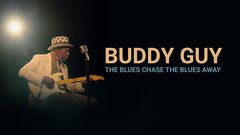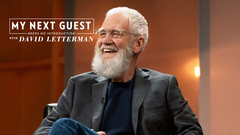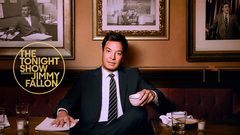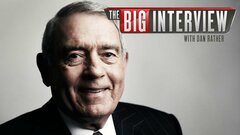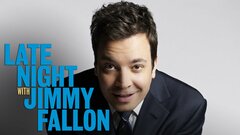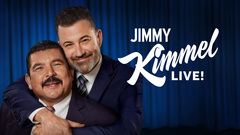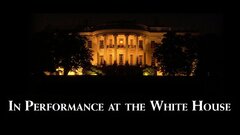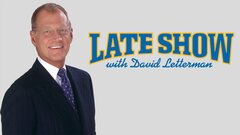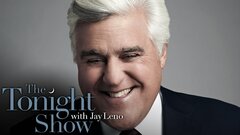Arguably one of the most acclaimed blues guitarists of the 20th century, as well as a living link to the Chicago blues scene's 1950s heyday, Buddy Guy's show-stopping talents provided him with a career that spanned over five decades while influencing a generation of legendary rock guitarists, including Eric Clapton and Jonny Lang. He rose to fame in the 1950s with songs like "The First Time I Met the Blues" and "Stone Crazy," which were earmarked by his fiery string-bending and aching, intense vocals. Guy was also a notoriously powerful live performer who wowed crowds by playing his guitar behind his head and with his teeth and by employing feedback and distortion at least a decade before Hendrix and others would do the same with their own music.
But like many veteran blues artists, Guy labored in obscurity for much of the 1970s and 1980s before a career revival in 1991, which saw him embracing pop and rock music with the same all-out sonic attack as his classic '50s sides. By the new millennium, Guy was unquestionably the most popular traditional blues player in the world, rivaled only by B.B. King - a status attained by his tireless devotion to playing his heart and soul before fans every night for nearly his entire life.
Born George Guy on July 30, 1936 in Lettsworth, LA, Buddy Guy began his journey by playing along with songs he heard on the radio with a rudimentary homemade guitar. He soon progressed to acoustic and electric models, which he employed at his earliest live gigs on the Baton Rouge blues scene. Initially plagued by stage fright, Guy soon developed the confidence and talent to back such established players as Slim Harpo and Lightnin' Slim.
In 1957, he headed north to try his hand in Chicago's notoriously competitive blues community. Guy soon made a name for himself by taking a tip from his idol, Guitar Slim, by increasing the volume and showmanship in his live performances. He also forged relationships with some of the city's best-known players, including Muddy Waters, Otis Rush and Magic Sam, who introduced him to Eli Toscano, head of Cobra Records. Artist-producer Willie Dixon, who had left Chess for Cobra, oversaw both of Guy's 1958 singles "Try to Quit You Baby" and "This is the End," which showcased his searing guitar and vocals.
However, Cobra folded the following year, and Guy followed Dixon back to Chess.
There, he worked as part of the house band, backing Muddy Waters and Howlin' Wolf on various sides, before releasing his own label debut, 1960's "First Time I Met the Blues." Guy's guitar pyrotechnics set the tone for his subsequent Chess releases, including "Broken Hearted Blues," "Stone Crazy" and "No Lie," but also spurred a long-standing dispute with label owner Leonard Chess, who regarded his technique as "noise." Guy began to distance himself from Chess in the mid-1960s.
He began a partnership with Chicago harpist Junior Wells on the latter's 1965 album Hoodoo Man Blues, for which he was billed as "Friendly Chap" over concerns by Delmark Records, which released the LP, over contract infringement with Chess. Guy finally left Chess in 1967, the same year the label finally released his first full-length record, I Left My Blues in San Francisco. He moved to Vanguard, where he cut a string of well-received albums that blended his Chicago blues attack with contemporary soul and rock sounds. His forward-thinking approach drew plenty of famous admirers, most notably Eric Clapton, Jimi Hendrix and Jeff Beck, who would adopt many of Guy's stylistic touches.
Clapton would form the power trio Cream after seeing Guy's act in England, while Hendrix would borrow liberally from Guy's stage act, including his use of feedback and penchant for playing his guitar with his teeth. Ironically, when Guy began playing for rock audiences at the tail end of the decade, most notably on an opening slot for the Rolling Stones' 1970 tour, he was frequently accused of imitating Hendrix.
Unfortunately, such high-profile associations did little for Guy's career during the 1970s. He recorded for a wide variety of labels while working the European blues and jazz festival circuit, often in tandem with Wells. The 1980s saw little improvement in his fortunes, but an invitation from Clapton to perform as part of his 24-night stand at the Royal Albert Hall in 1990 led to revived interest, as well as a new recording contract with Silvertone Records.
Clapton, Beck and Mark Knopfler all contributed to his 1991 album Damn Right, I've Got the Blues, which won a Grammy for Best Contemporary Blues Album while also spawning a full-fledged comeback for Guy. A slew of new recordings soon followed, though results were often varied; Guy occasionally alienated fans by pursuing mainstream appeal through collaborations with anomalous guest performers like Travis Tritt on 1993's Feels Like Rain, though the album captured another Grammy, as did its follow-up, the more traditionally-inclined Slippin' In.
However, critics also noted that Guy could not be faulted for trying to increase his fanbase by recording non-blues material or pairing with contemporary rock artists. If the debate appeared to bother Guy, it did not affect his touring or recorded output, which soon grew to embrace acoustic blues on Last Time Around - Live at Legend's, a 1998 live recording with Junior Wells, and Sweet Tea (2001), which topped the blues charts while capturing a Grammy nomination.
Guy then released the Grammy-winning Blues Singer (2003), which followed in the same unplugged vein as Sweet Tea, the same year he received the National Medal for the Arts from President George W. Bush. By this point, his career accolades also included 23 W.C. Handy Awards, as well as Billboard's second-ever Century Award and a spot in the Rock and Roll Hall of Fame in 2005. Guy continued to record throughout the 2000s, moving deftly between acoustic and electric efforts while collaborating with such artists as Keith Richards, Carlos Santana, Joss Stone and John Mayer.
He reached a career milestone with his 2010 record Living Proof, which reached No. 46 on the Billboard albums chart - his highest chart position in over a half century in music. The album also earned Guy his sixth Grammy Award. In 2012, Guy performed for President Barack Obama at the White House, where he successfully coaxed the Commander-in-Chief to provide vocals on a few bars of "Sweet Home Chicago."
By Paul Gaita




